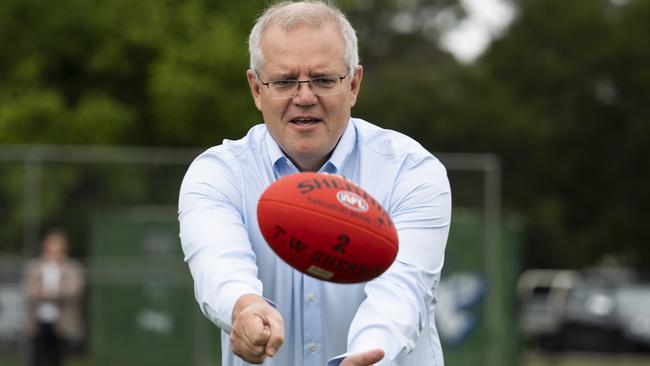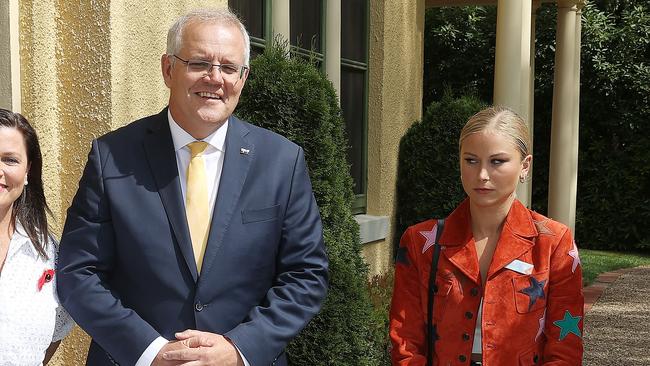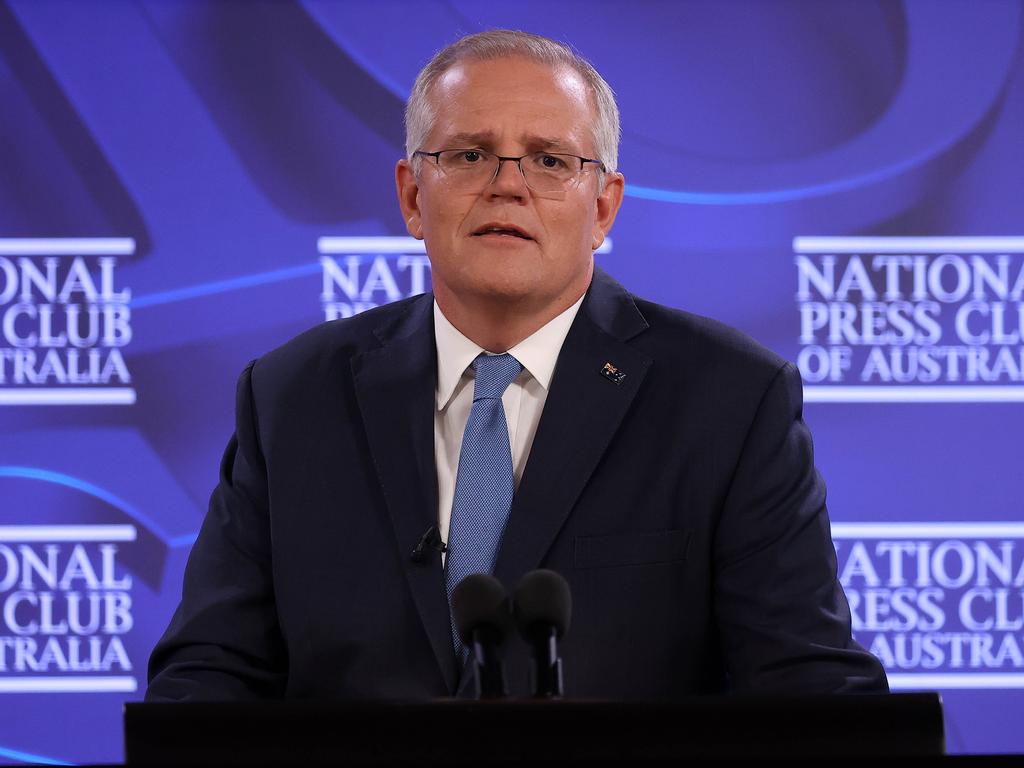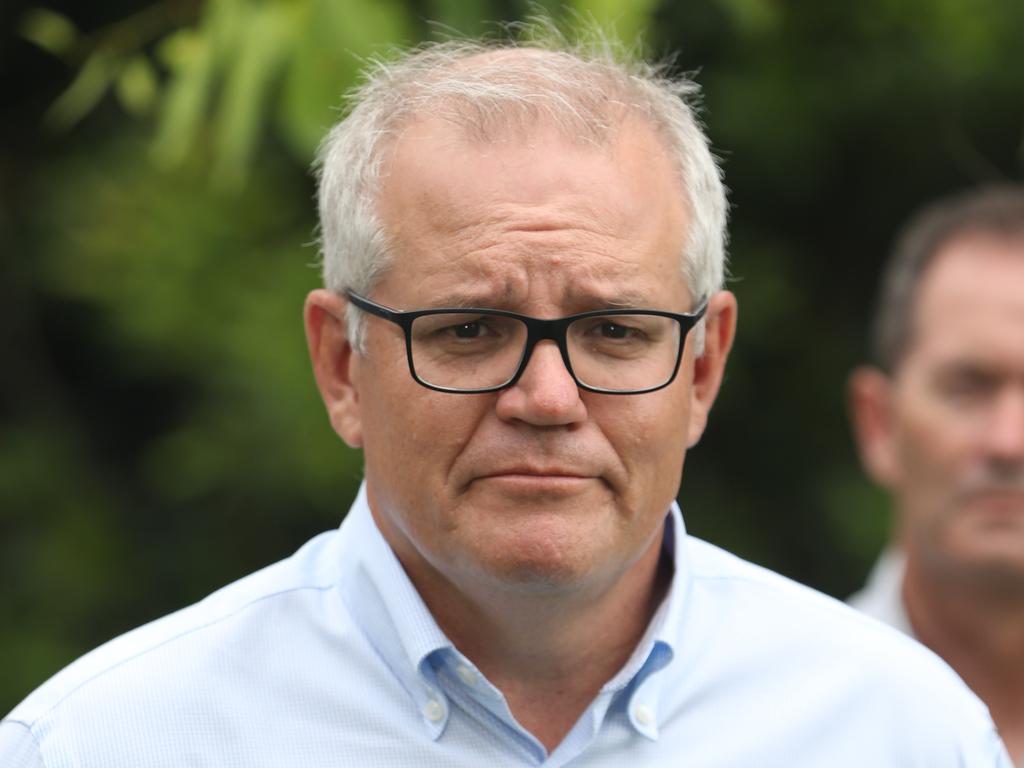Down south we’ve had it up to here with Scott Morrison
An angry, disgusted Grace Tame conveyed the public mood. Many have been in denial about it, but it’s been building for a long time.

There is little point debating whether this mood is reasonable, warranted or fair. The point is, it exists. It is widespread and cannot be ignored. People are not happy with the federal government, and the polls and focus groups reflect that. There are many who have been in denial about it, but it has been building for a long time, this anger. Unless something big changes, the Coalition can expect a drubbing at the election.
In Victoria, the mood is particularly sour. According to a Newspoll published in The Australian this week, 37 per cent of people surveyed in NSW regard Morrison as the best person to lead the nation out of the pandemic, 35 per cent in Queensland agree, but in Victoria only 26 per cent feel the same way.

When it comes to climate change, only 16 per cent in Victoria favour Morrison as the best person to lead our response, 23 per cent in NSW do and in Queensland 26 per cent concur.
On the category of creating jobs and growing the economy, 38 per cent in both NSW and Queensland thought Morrison was better for the economy. In Victoria, only 26 per cent agreed. Finally, when it came to dealing with the threat of China in the Asia-Pacific, 36 per cent in NSW and 33 per cent in Queensland favoured the Prime Minister. In Victoria it was just 25 per cent.
At the 2019 federal election, Victoria went against the national trend when it determinedly swung against the Coalition. It appears ready to do so again. So it raises the question – is there anything Morrison can do to lift his prospects in Victoria and, if so, what?
The first thing Morrison needs to do is understand the culture here, and make a demonstrable effort to address and reverse the sense of independence Victorians feel from the rest of the nation.
In January last year, CT Group surveyed 2000 people across Australia about their feelings of attachment to their respective state identity. The research was regarded as having major consequences for governments. It revealed that Melburnians have a stronger sense of state identity than any other state. In contrast, Sydney people have the lowest.
Victorian people, more than any others, see themselves as Victorians first and Australians second. As someone who has lived in all three states of the eastern seaboard, I can attest to this. The experience here also has shown me that there are sound reasons for it.
In the survey, only 23 per cent of people living in Sydney identified “extremely strongly” with their state identity. However, 42 per cent of people living in Melbourne identified “extremely strongly” as being Victorian. La Trobe University emeritus professor of politics Judith Brett, commenting on the data, said that politically Victorians “see a country which has been run by NSW basically since John Howard. Tony Abbott followed, with Turnbull and Morrison.”
Add to this the fact much of the media is headquartered in Sydney, and it might be easy to see why Victorians, who feel they are not being spoken to – and are often spoken about pejoratively – have lost interest, and wandered off.
The sense of not belonging was exacerbated during the pandemic. How Victorians experienced the lockdowns entrenched further the feeling of separation from the rest of the country and the government that leads it. For example, over the past two years Morrison has come to be widely regarded in Victoria as “the PM for NSW”.
To lift his appeal, Morrison could spend some time in our state. He may wish to make a greater effort to find common ground and align himself culturally. He may wish to address and rebut the perception of him as PM for NSW and speak directly to Victorians, about issues that interest them.
Morrison likes to be seen celebrating a portrayal of Aussie beach culture, but Victorians don’t identify with that – T-shirts and shorts, Aussie flag face masks and talk about barbecues with plain white sliced bread just don’t resonate here.
The CT Group research showed that Victorians are less concerned with materialistic acquisition and more concerned with sport, culture, and community. Nevertheless, rising house prices have exacerbated public anxiety around wage stagnation. Labor has its answer to this problem – more union involvement. Perhaps the Prime Minister could speak to this issue, with an alternative plan.
Despite our differences, voters across the country harbour concerns that their salaries and retirement funds won’t afford them and their loved ones the standard of living they reasonably expect. Victorians are no different.






Put the arguments aside over whether it was wrong or right, and focus on what is significant – namely, the emotions that were expressed. On Australia Day eve, when in the presence of Scott Morrison, Grace Tame was visibly discomfited. Tame presented as angry and disgusted with the Prime Minister. These were personal feelings but, in their display, Tame conveyed the public mood of a large cohort.